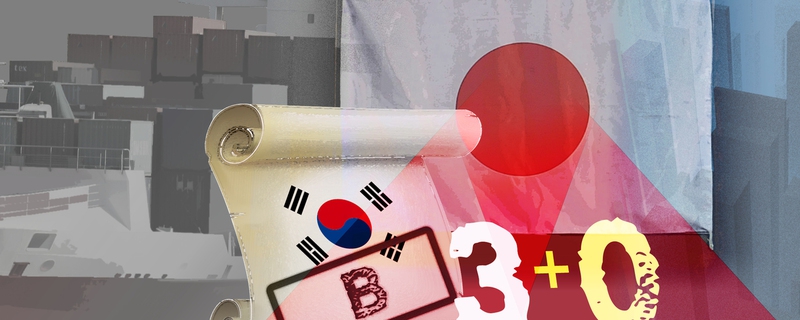Posted on : Aug.8,2019 15:50 KST
Modified on : Aug.8,2019 16:35 KST
On Aug. 7, the Japanese government published a revision of its export and trade management rules, removing South Korea from its “white list” of countries that enjoy streamlined export procedures, as it had promised. As of Aug. 28, Japanese companies that export products with potential military applications to South Korea can no longer receive a “general comprehensive permit” valid for three years.
At the same time, the administration of Prime Minister Shinzo Abe didn’t cancel the “special general comprehensive permits” already secured by companies exporting to South Korea when it announced the regulations for handling comprehensive permits, which are part of the export and trade management rules. That is to say, no more special general comprehensive permits were replaced with individual permits, which is what happened with the three materials for semiconductors that have been under export controls since July 4.
Special general comprehensive permits are three-year comprehensive permits issued by the Japanese government after certifying that a Japanese exporter is competent at managing exports, which eliminates the need to apply for a permit for each individual shipment. Nearly all Japanese companies that export to South Korean chaebol reportedly have a special general comprehensive permit. This means that, at least for the chaebol, the fallout will only affect companies that are importing the three semiconductor materials subject to tightened controls.
 |
|
The Suwon branch of the Korea Chamber of Commerce and Industry holds a meeting regarding Japan’s export controls on Aug. 7. (Yonhap News)
|
This is leading some analysts to infer that the Abe administration is holding off on escalating the dispute because of the stern response from the South Korean government and public and because of criticism from the international community. But there are few signs that the Abe administration’s fundamental attitude has changed. For one thing, the Japanese government could cancel the special general comprehensive permits at any time; for another, small and medium-sized South Korean companies that do business with Japanese exporters without those permits are likely to suffer harm.
In addition, the Abe administration unexpectedly altered the categorization system for its white list. Previously, there were only two categories: either a country was on the white list or it wasn’t. But in the future, Japan has decided to create four groups, named A, B, C, and D. Of the 27 countries that have enjoyed white list privileges, all 26 except for South Korea will be in Group A, while South Korea will be in Group B. The basic effect is still the same, however, since Japanese companies will be given the discretion to manage their exports to countries in Group A, while Japanese government regulators will oversee exports to countries in Group B. This categorization is likely aimed at emphasizing that South Korea’s removal from the white list isn’t economic retaliation but rather a matter of export management. In a word, this is a sneaky move aimed at obscuring the fact of Japan’s economic retaliation.
During a regular briefing on Wednesday, Japanese Chief Cabinet Secretary Yoshihide Suga reiterated the claim that South Korea’s removal from the white list was not “economic retaliation or a protest measure.” Japan is still trying to pull the wool over our eyes. The Abe administration needs to cease such prevarication and immediately retract its export controls. Japan needs to know that a return to the status quo is the first step toward normalizing relations with South Korea.
Please direct comments or questions to [english@hani.co.kr]








